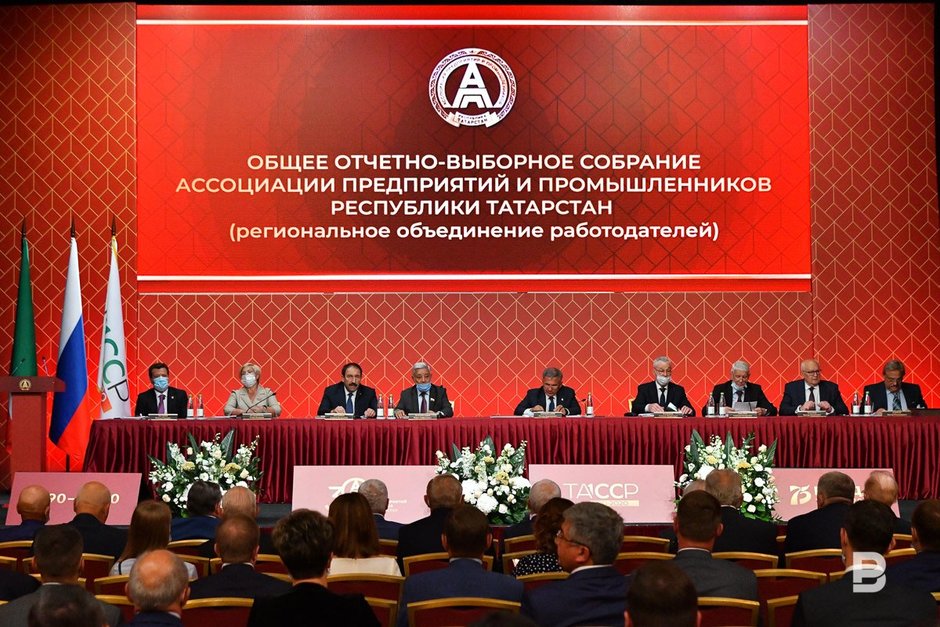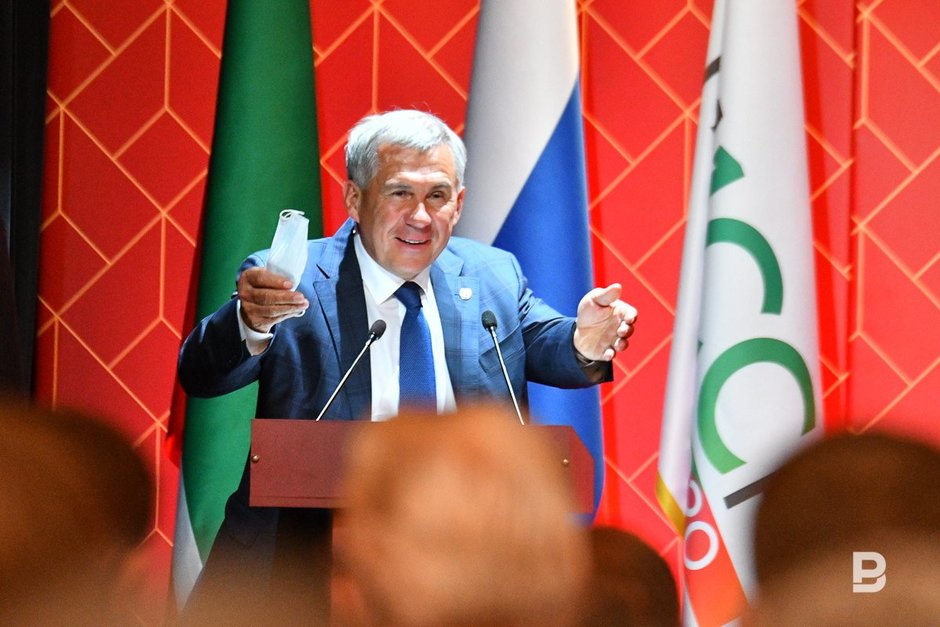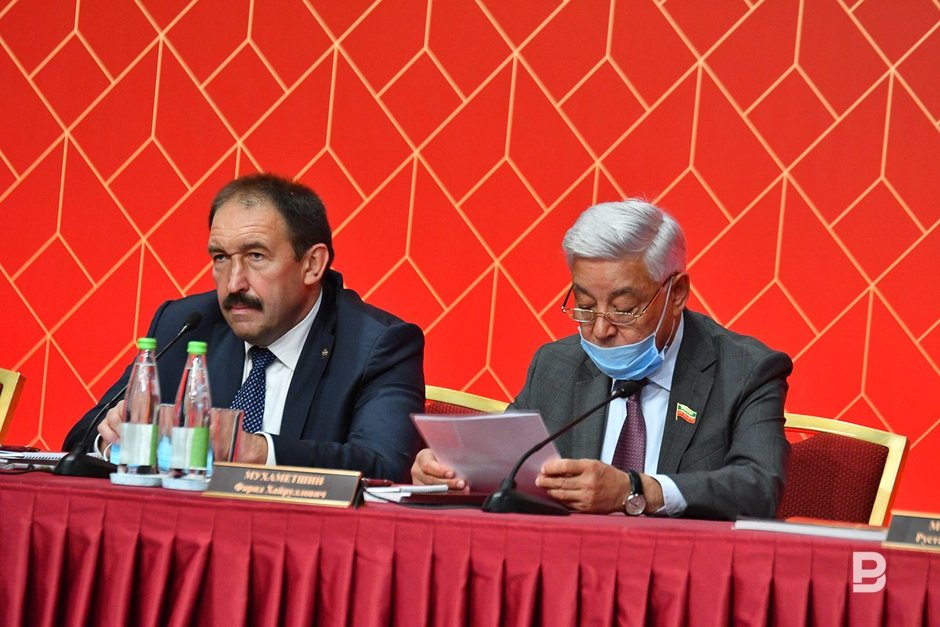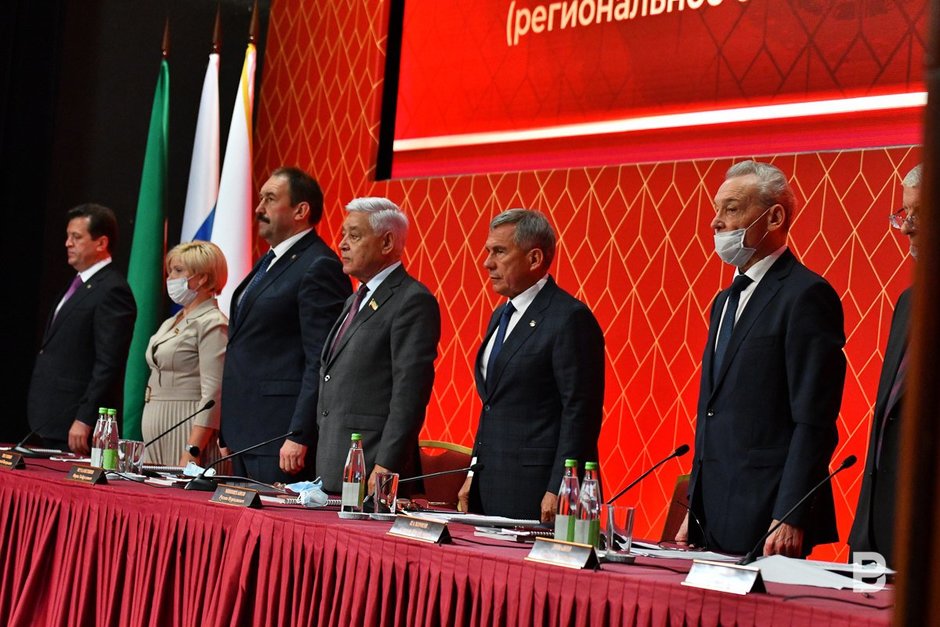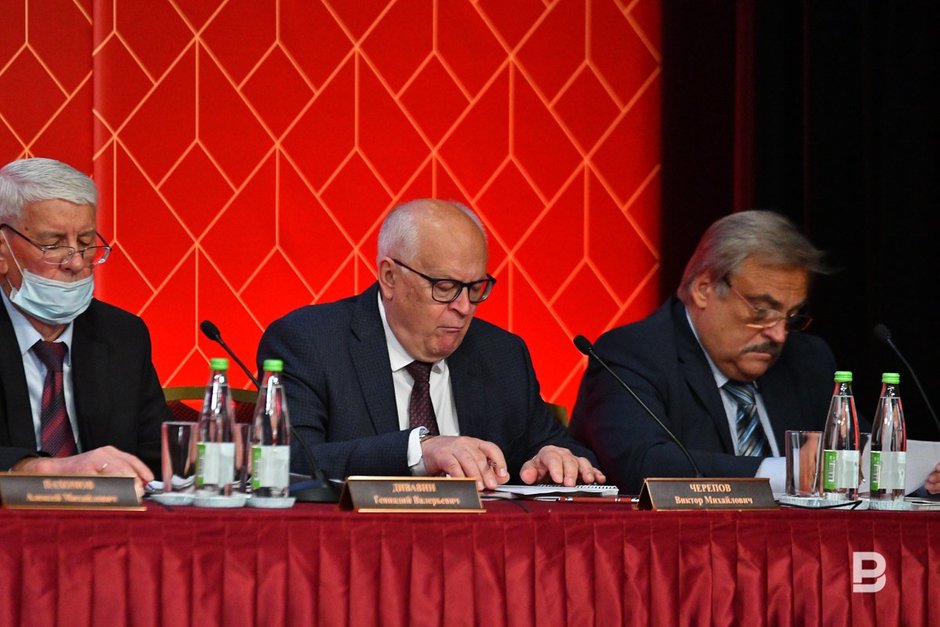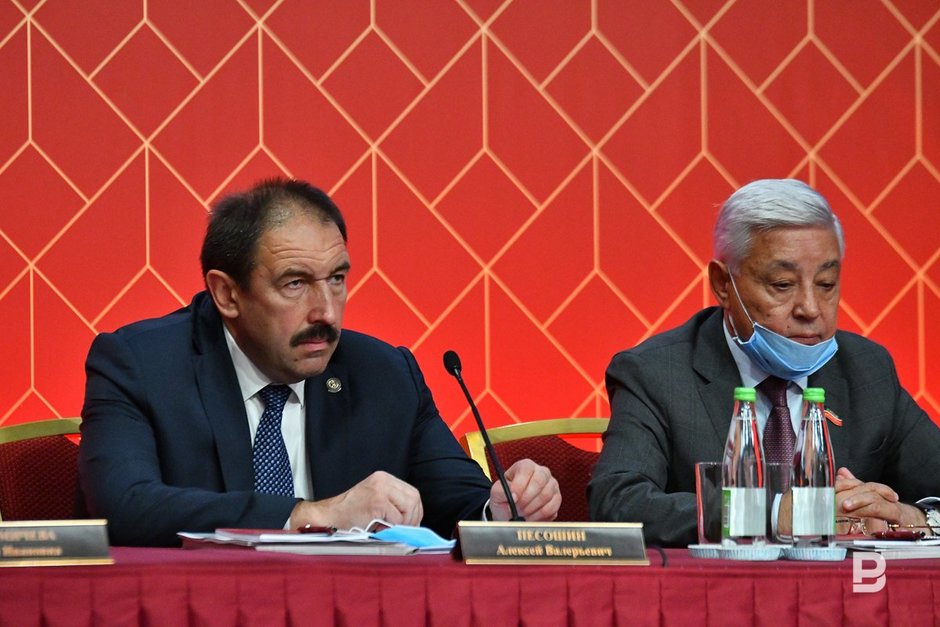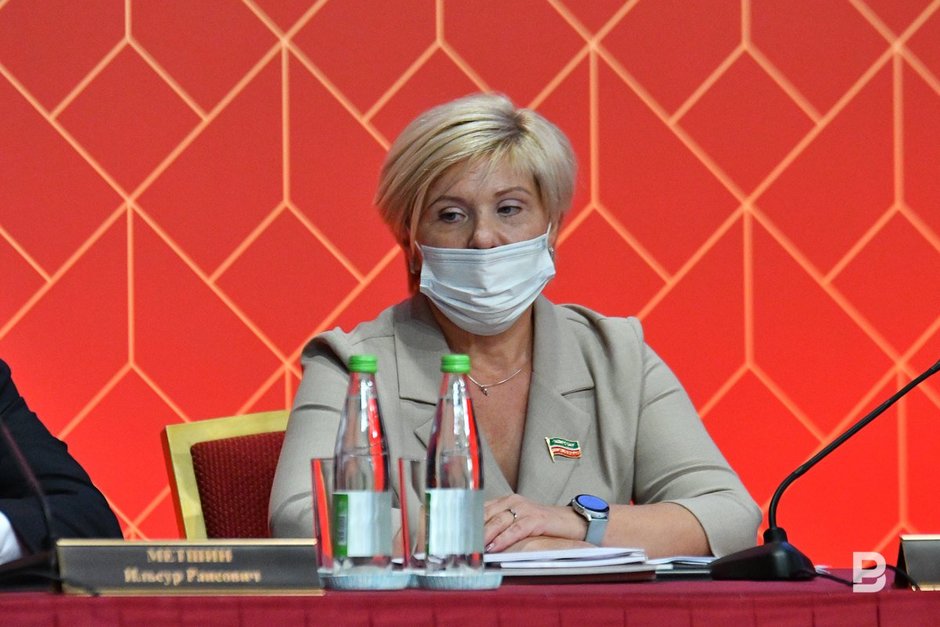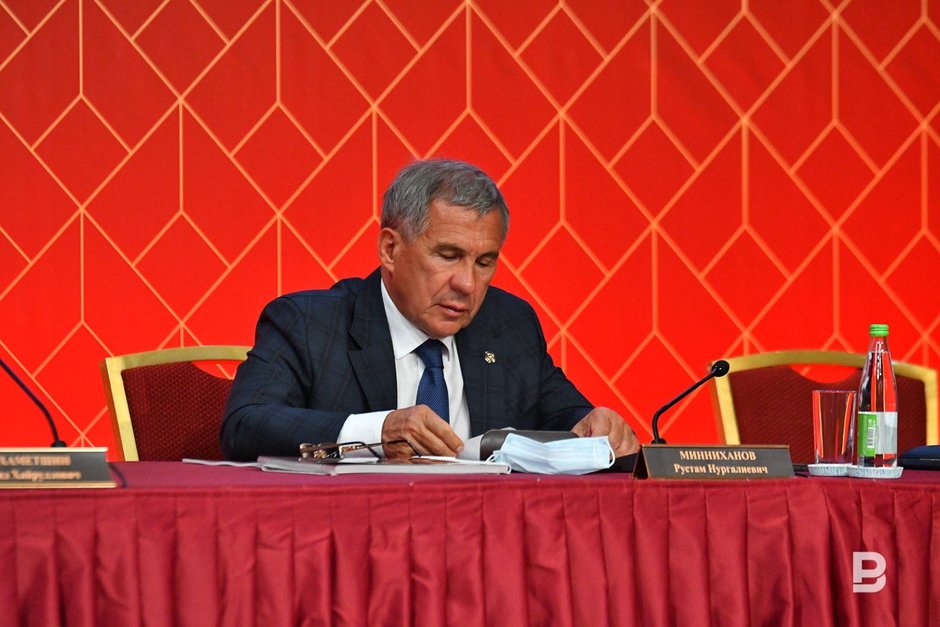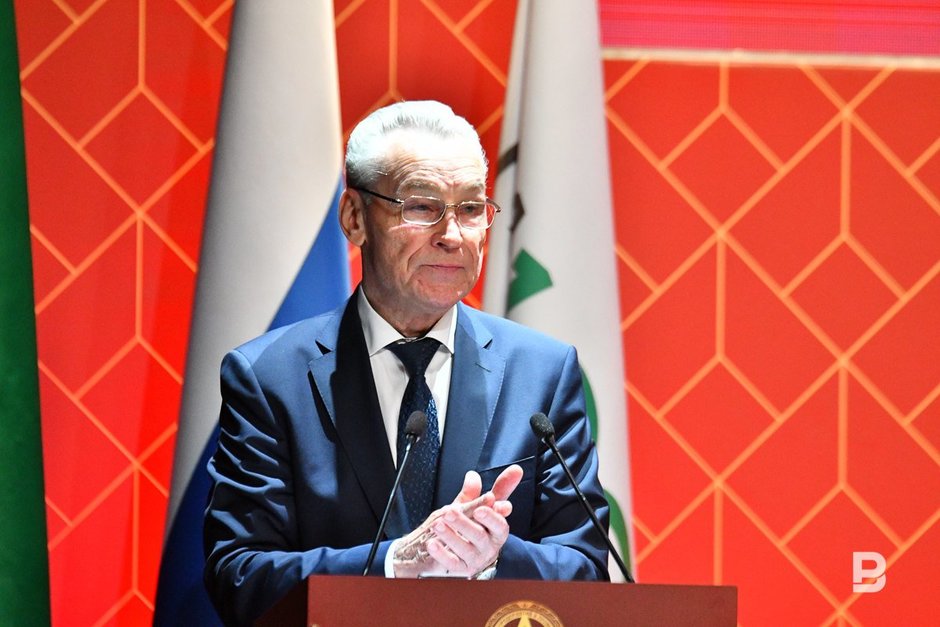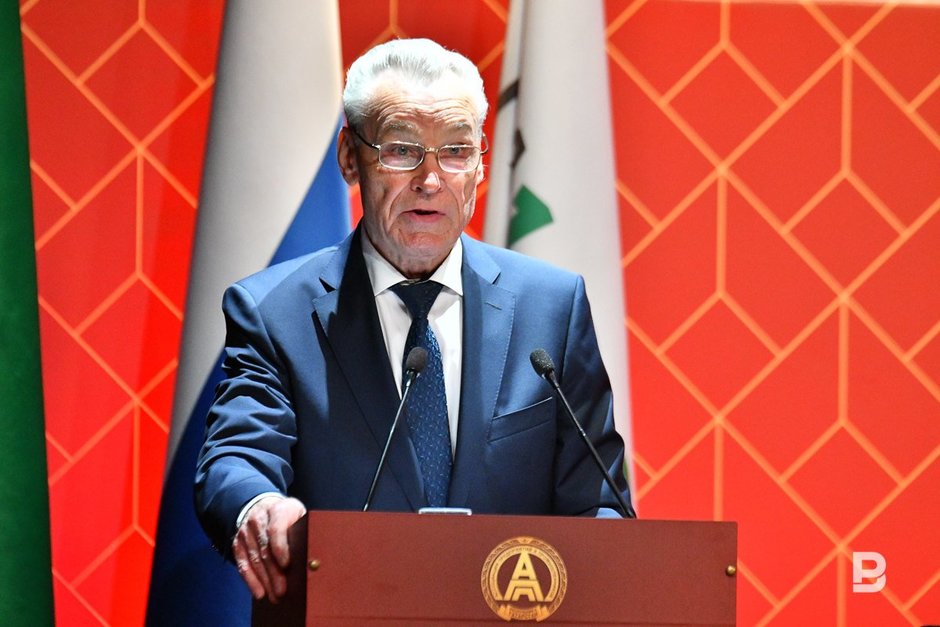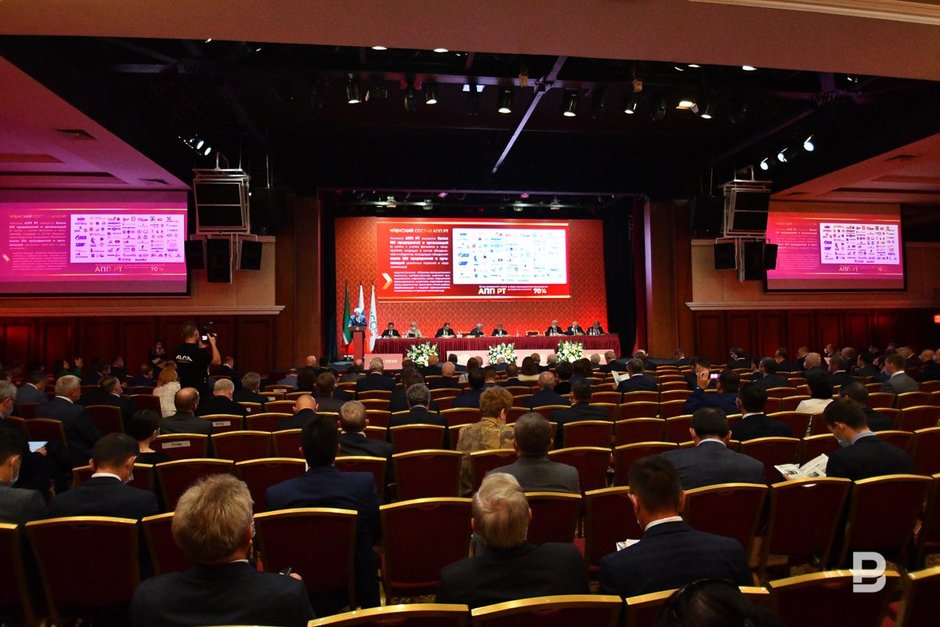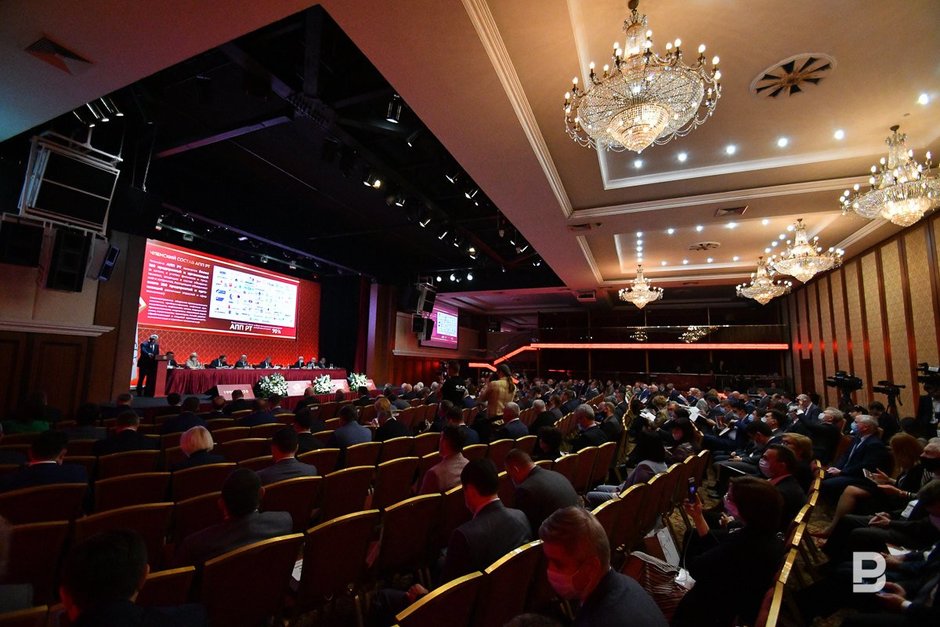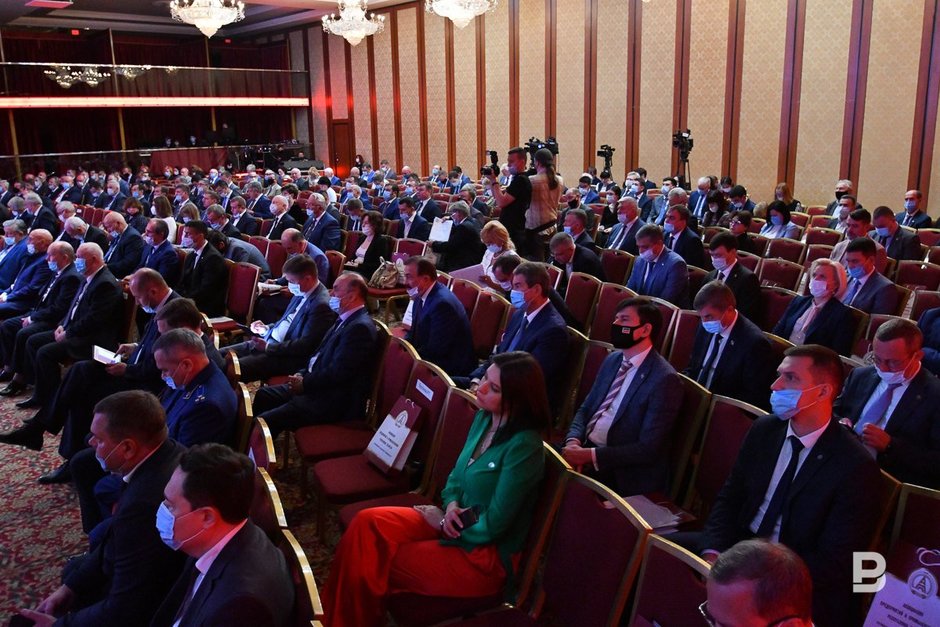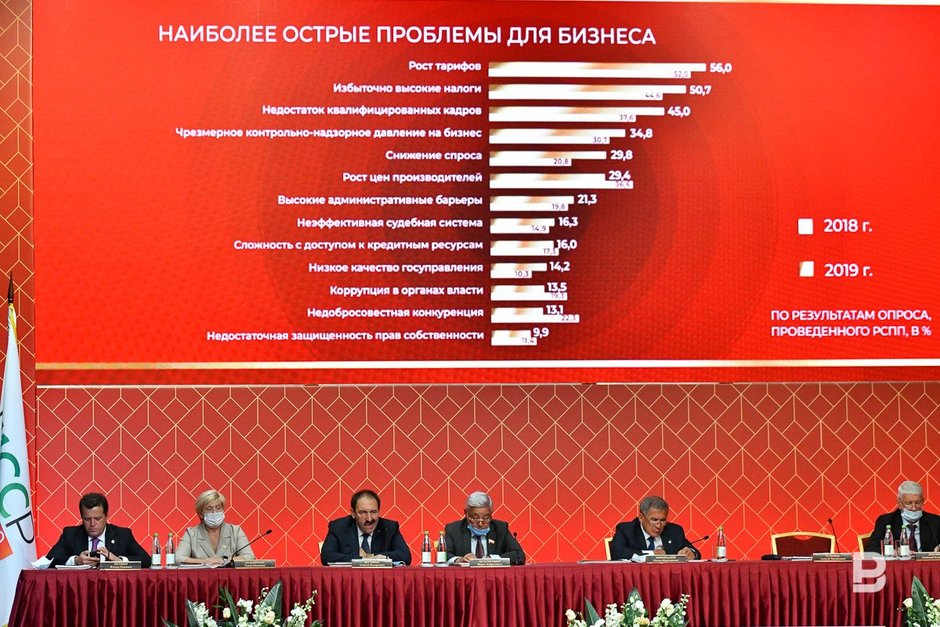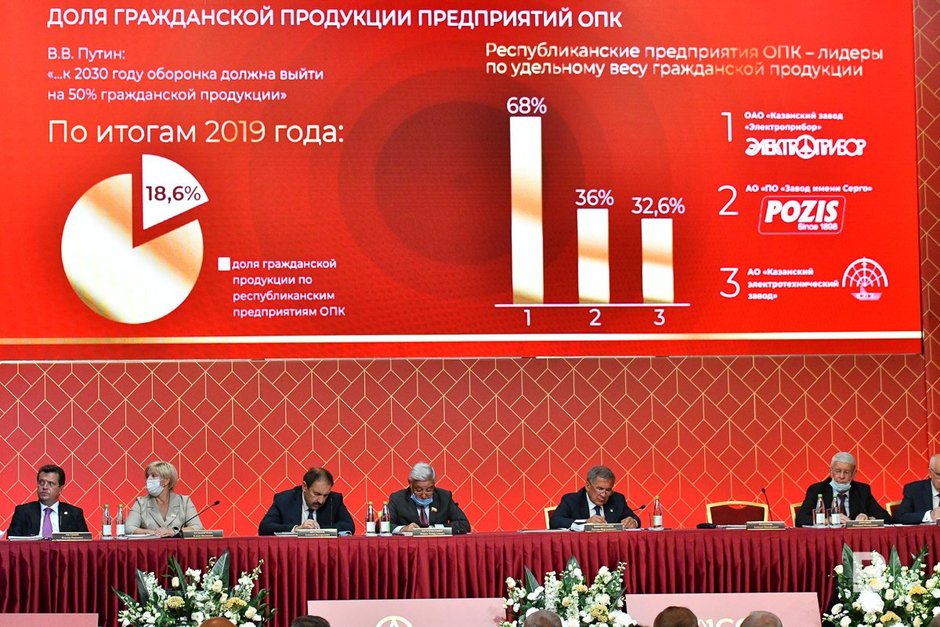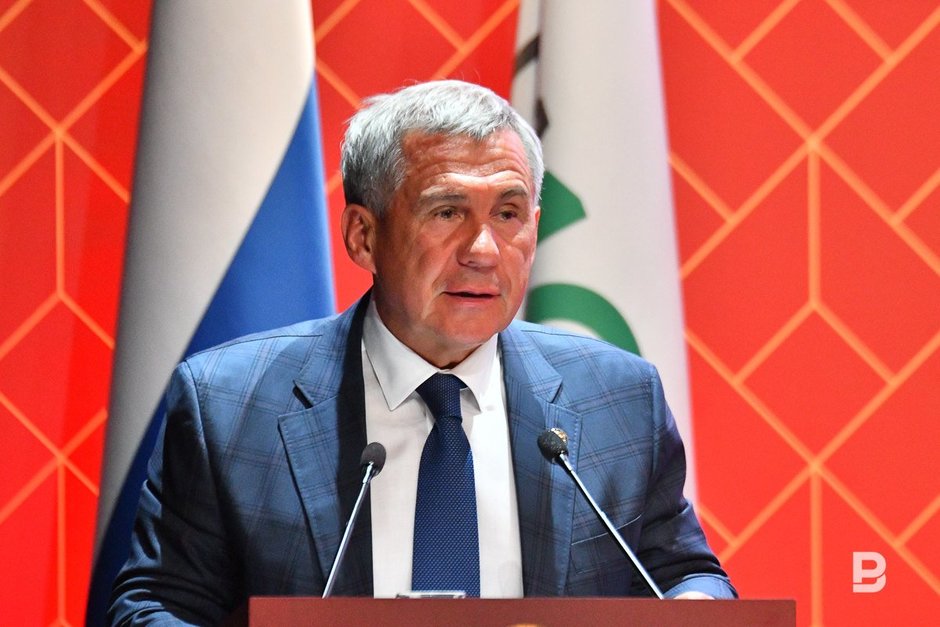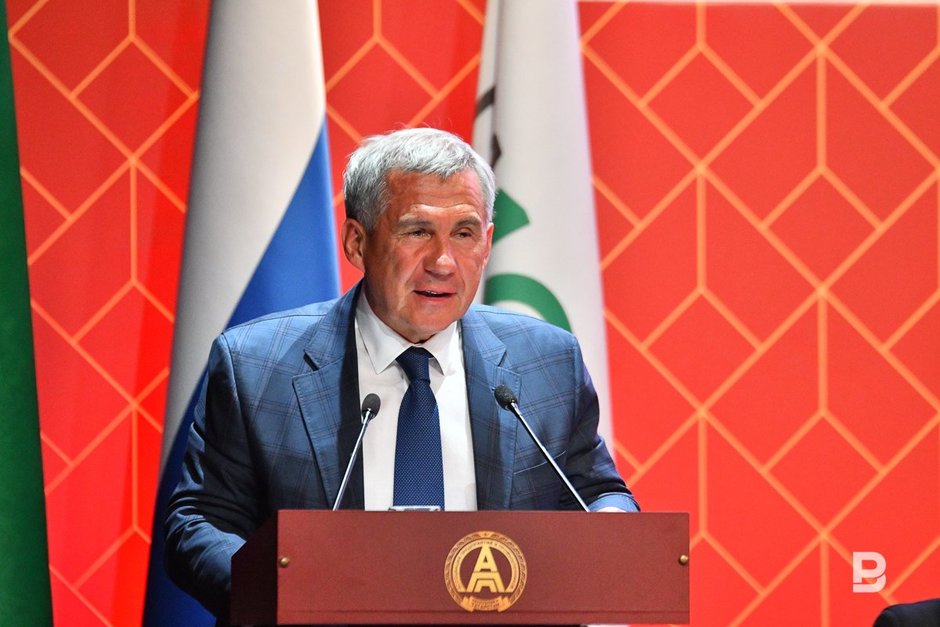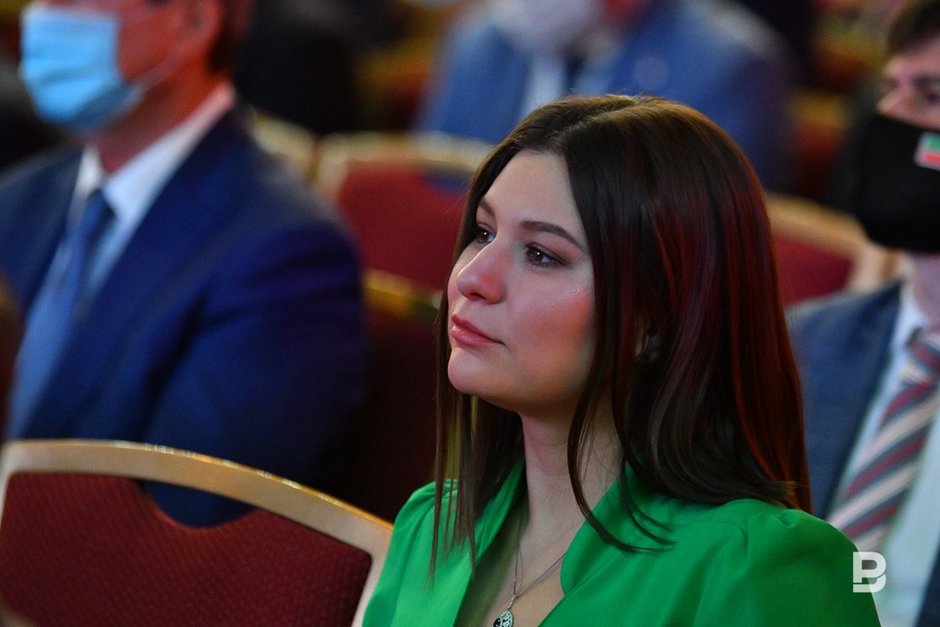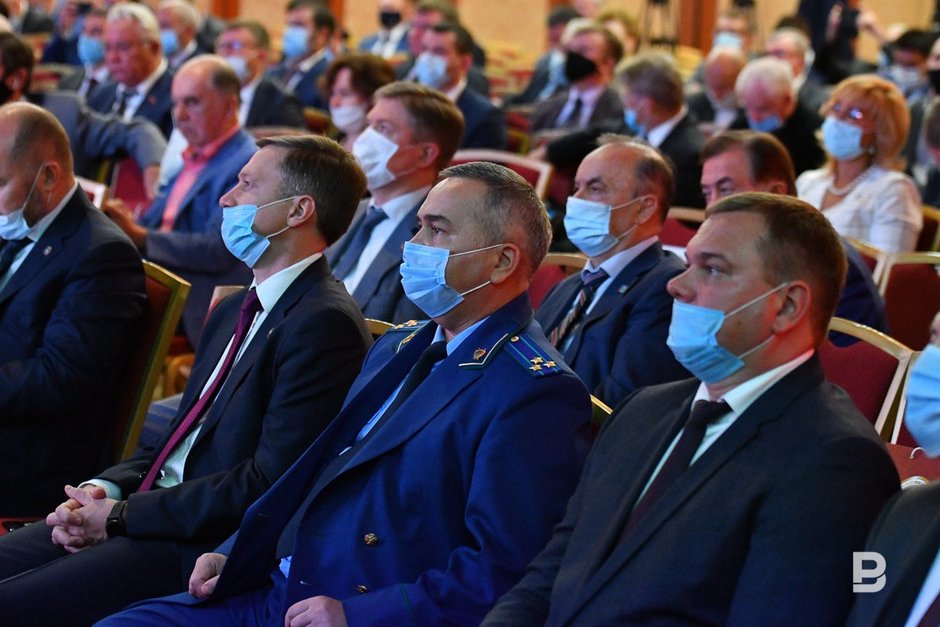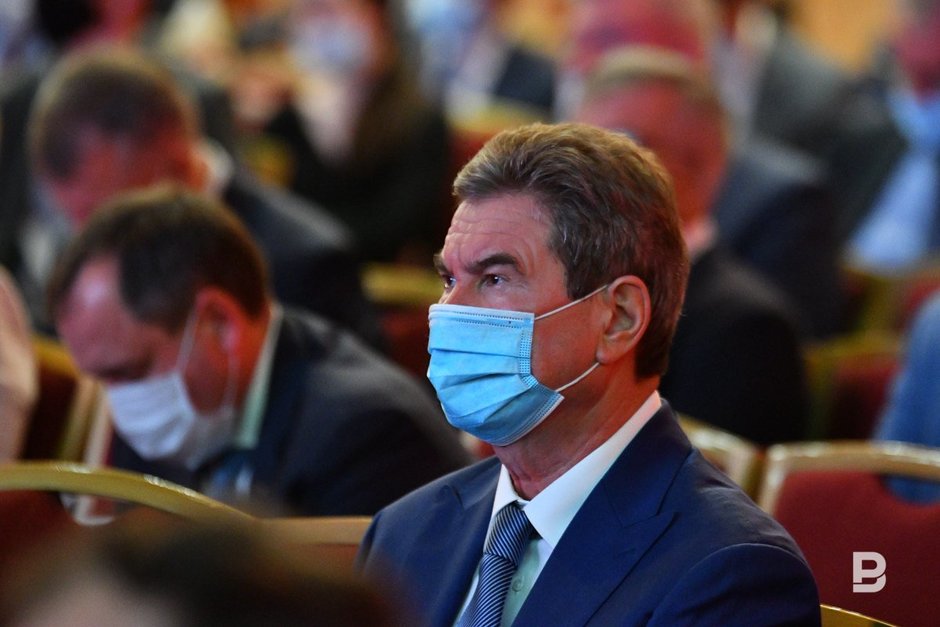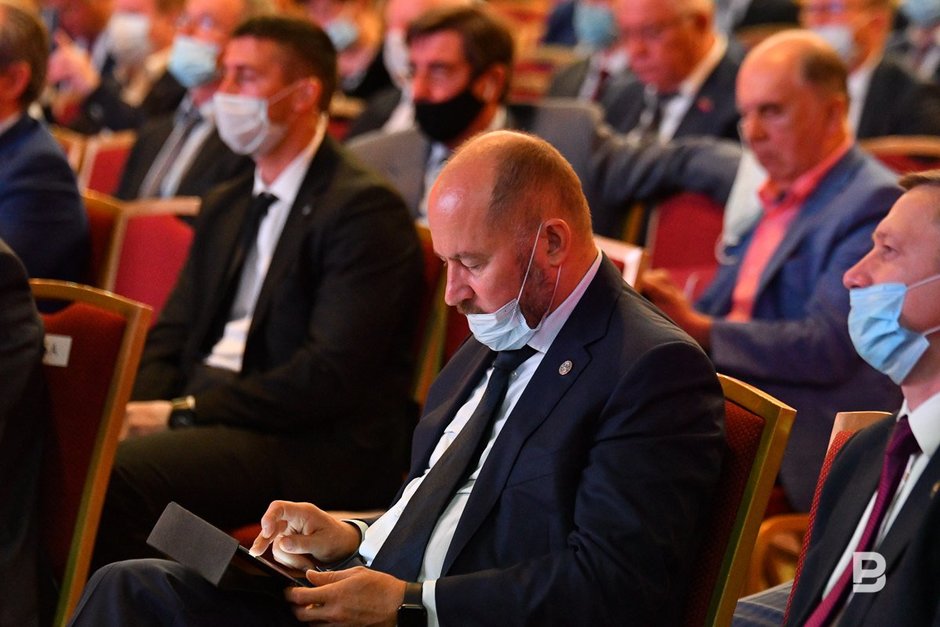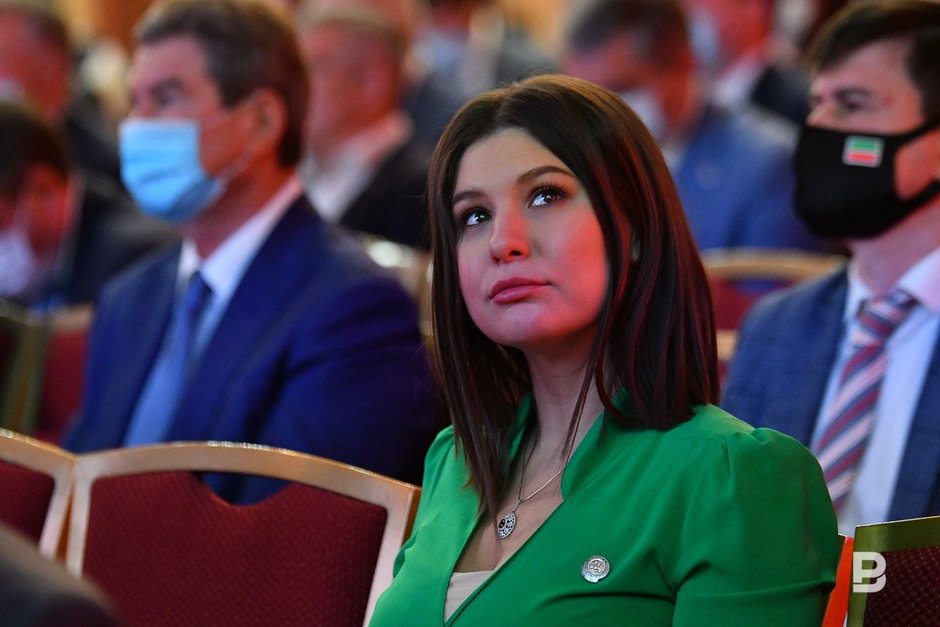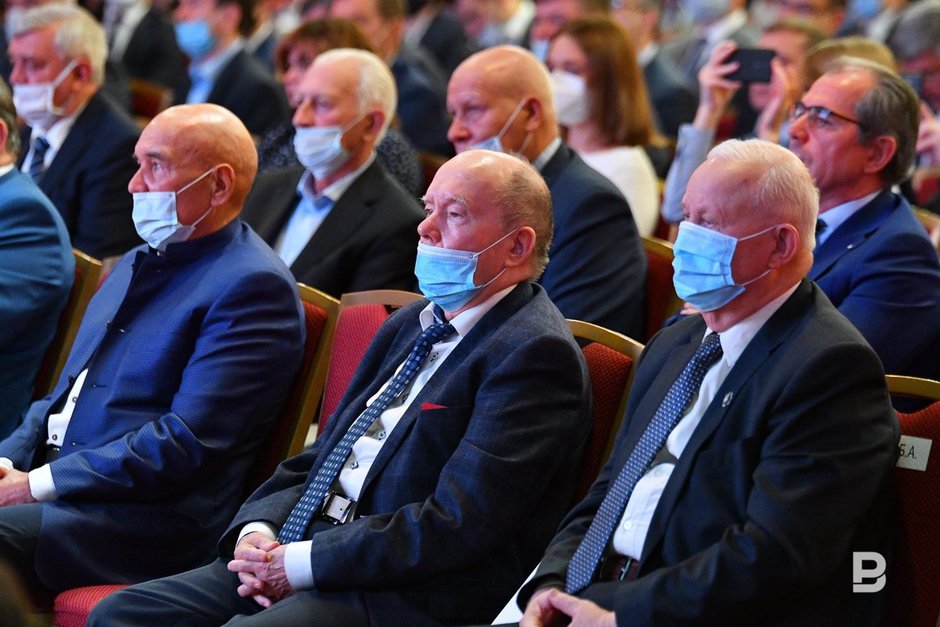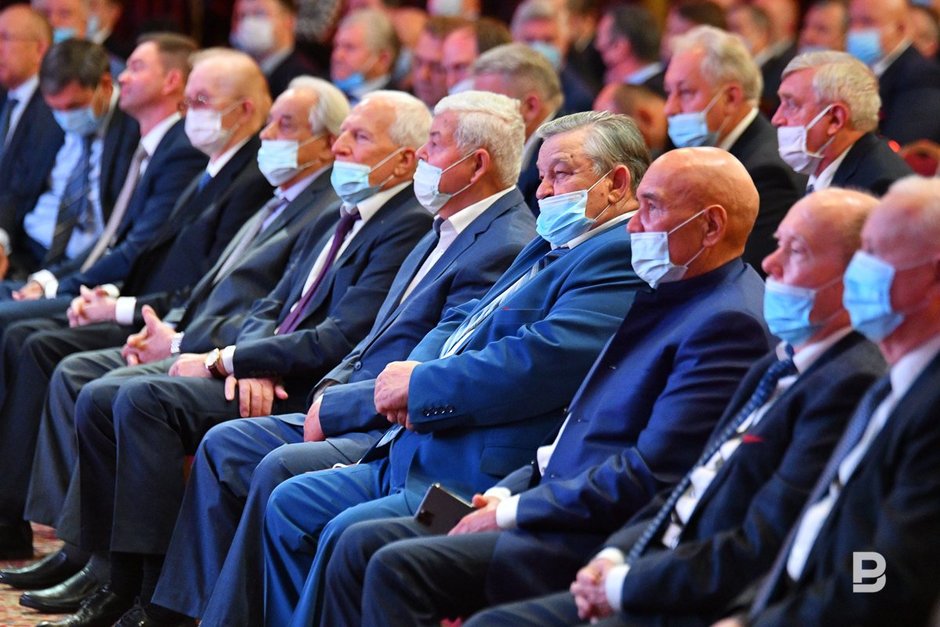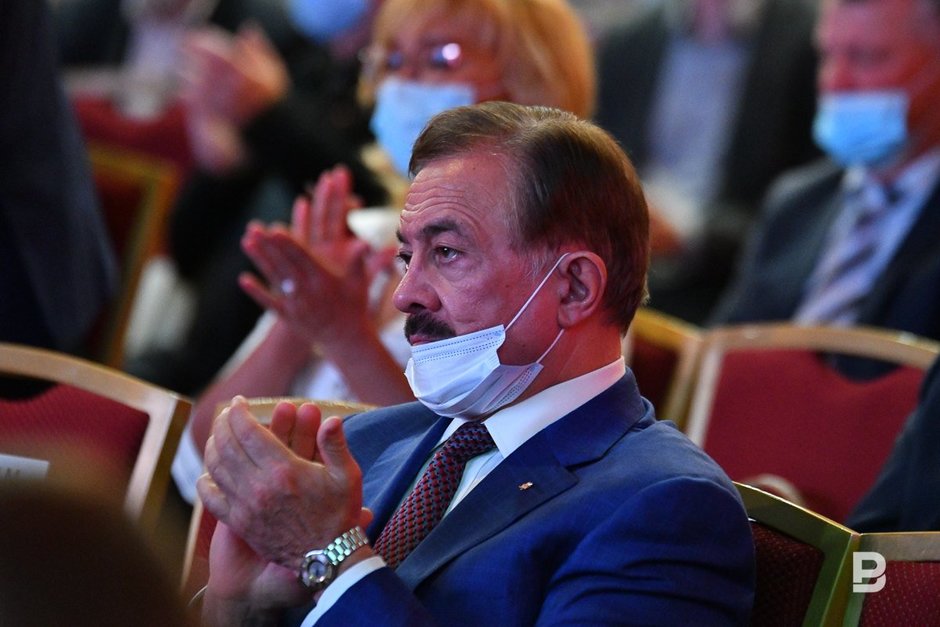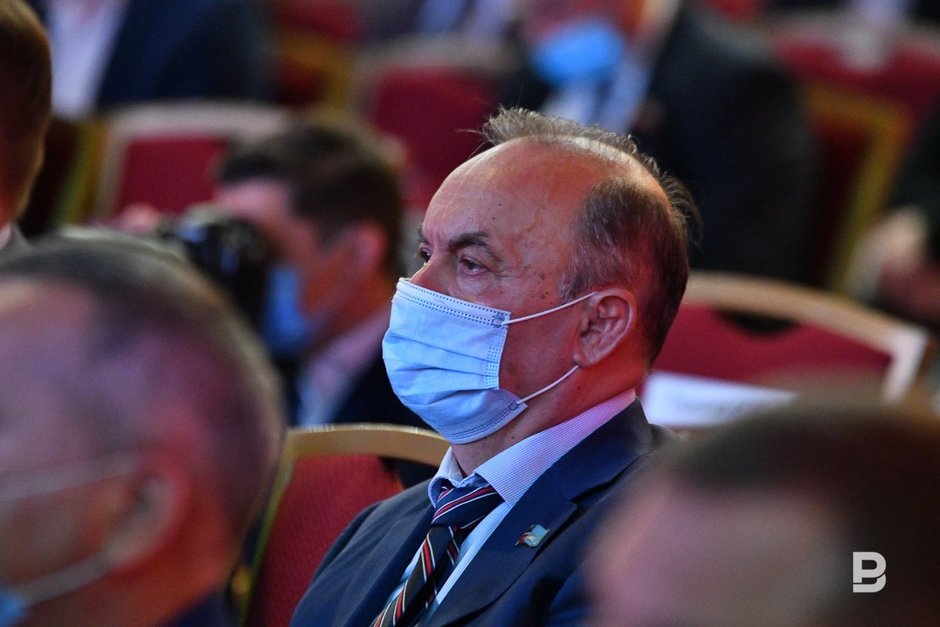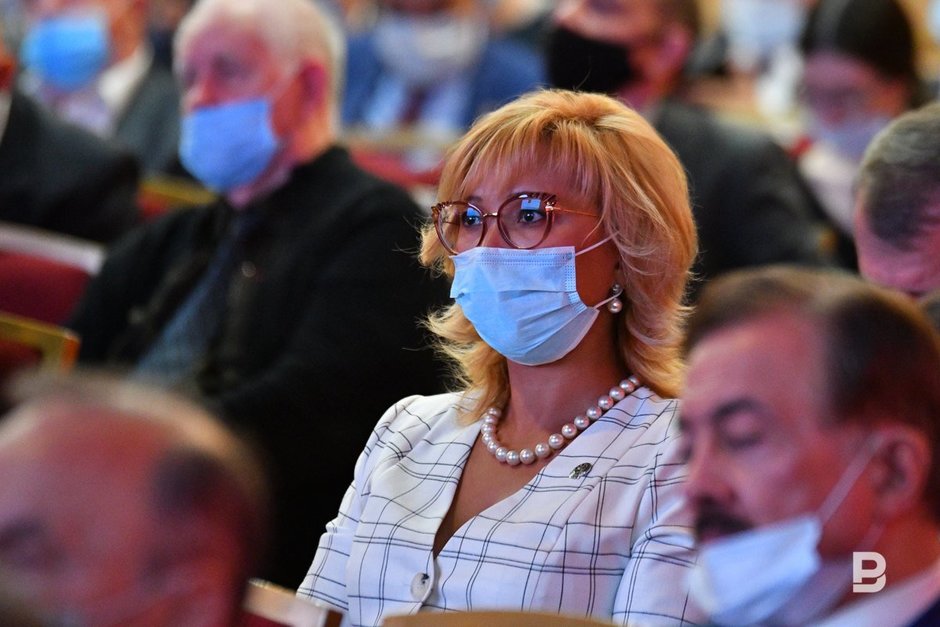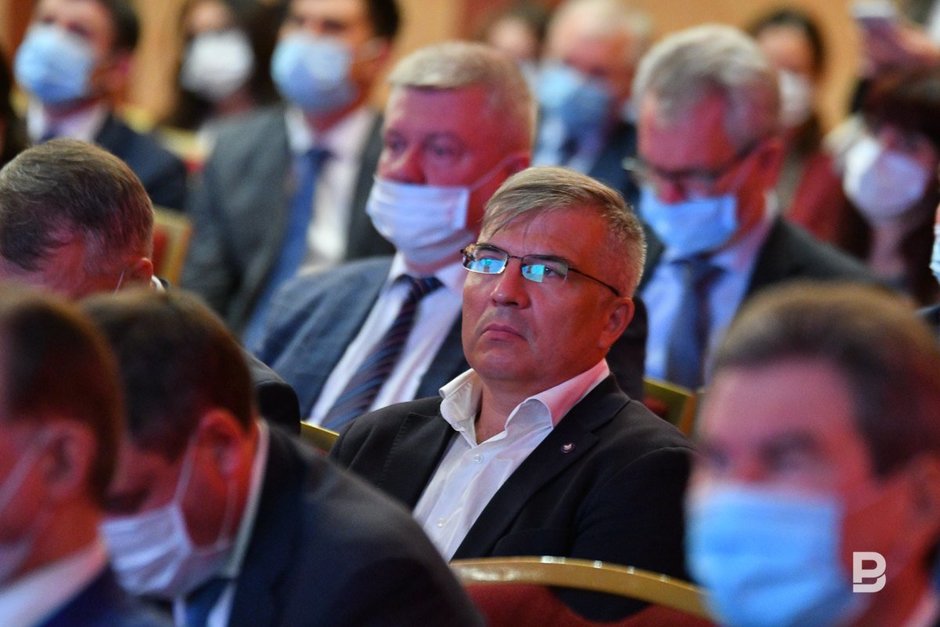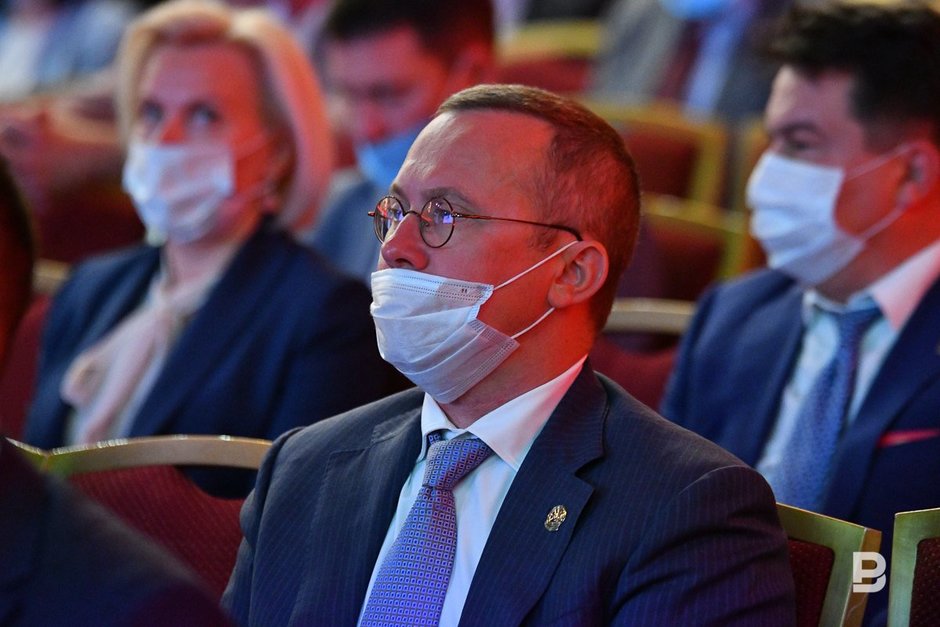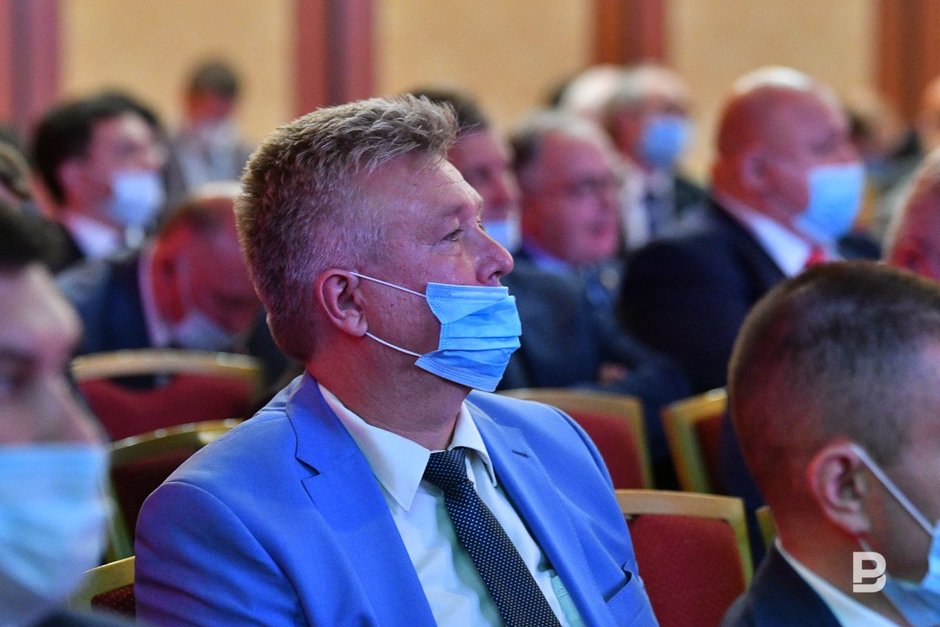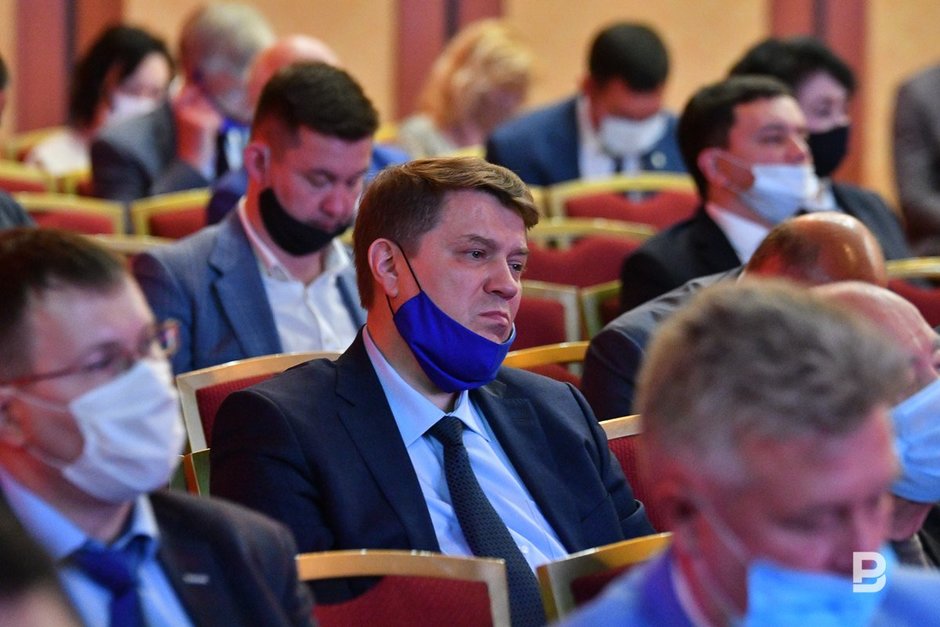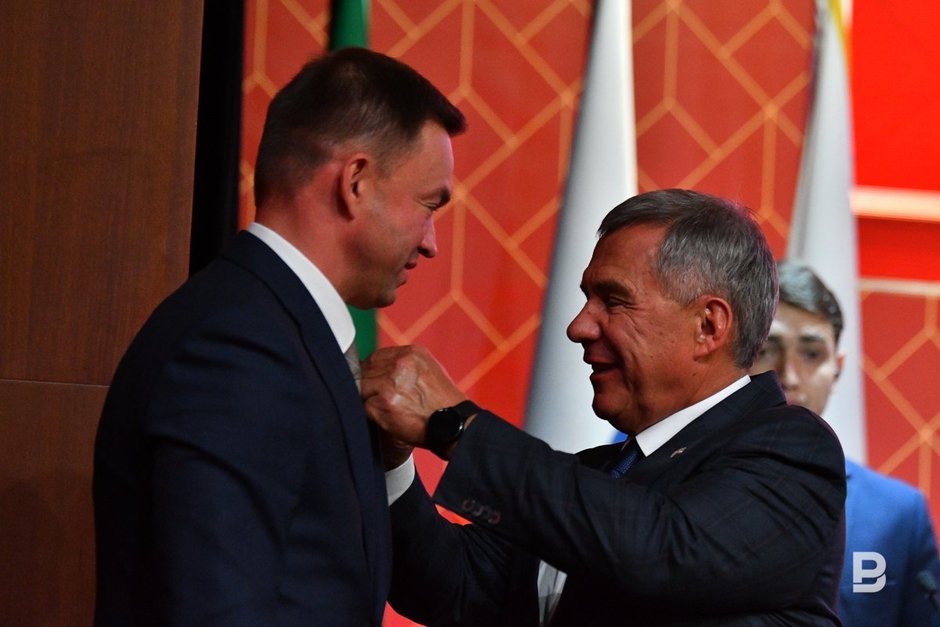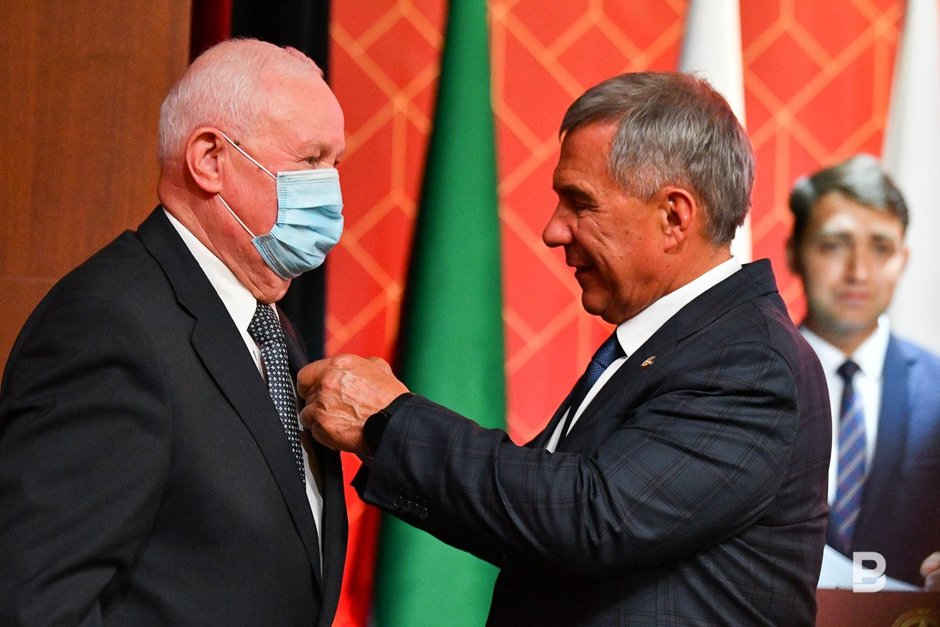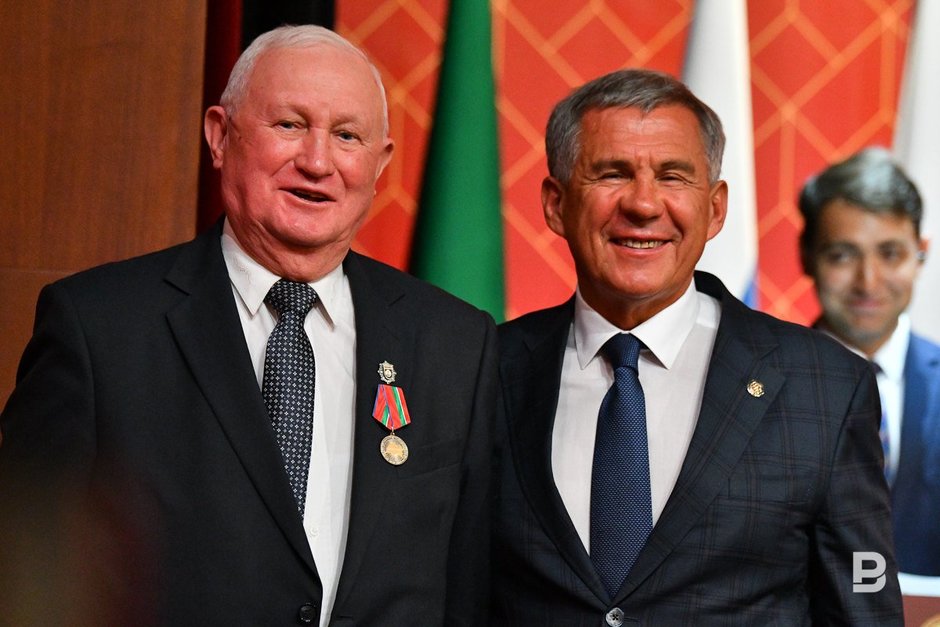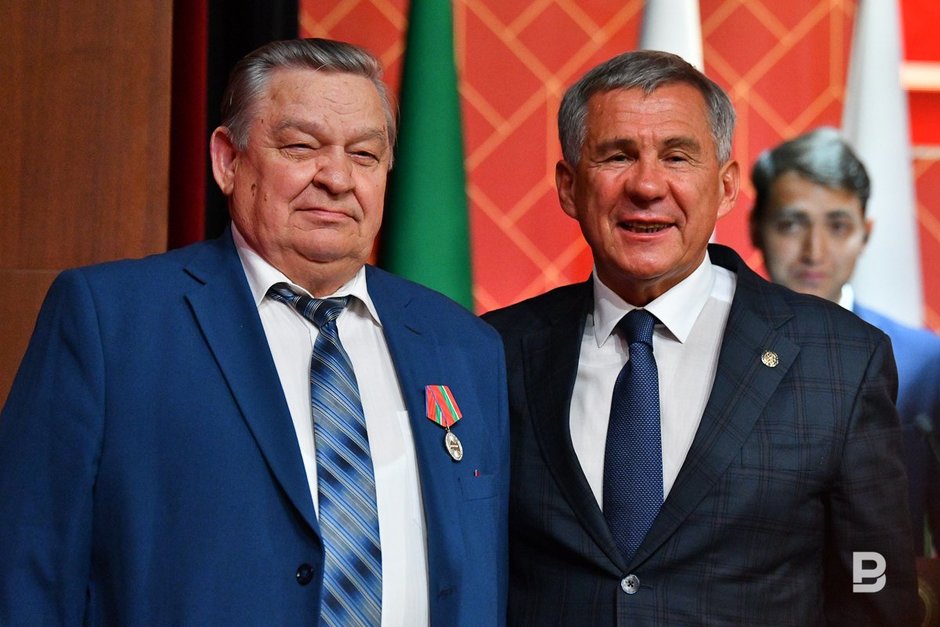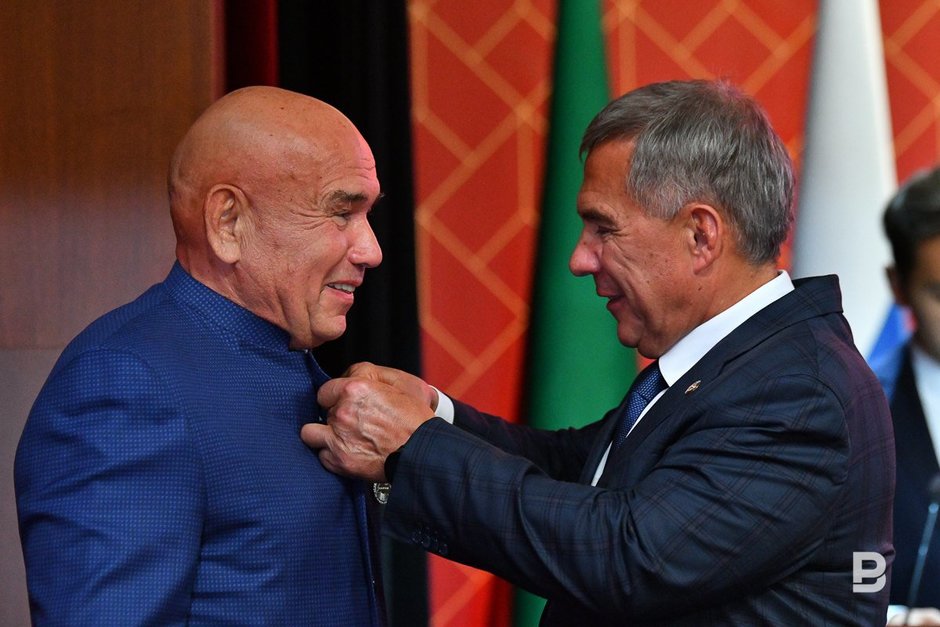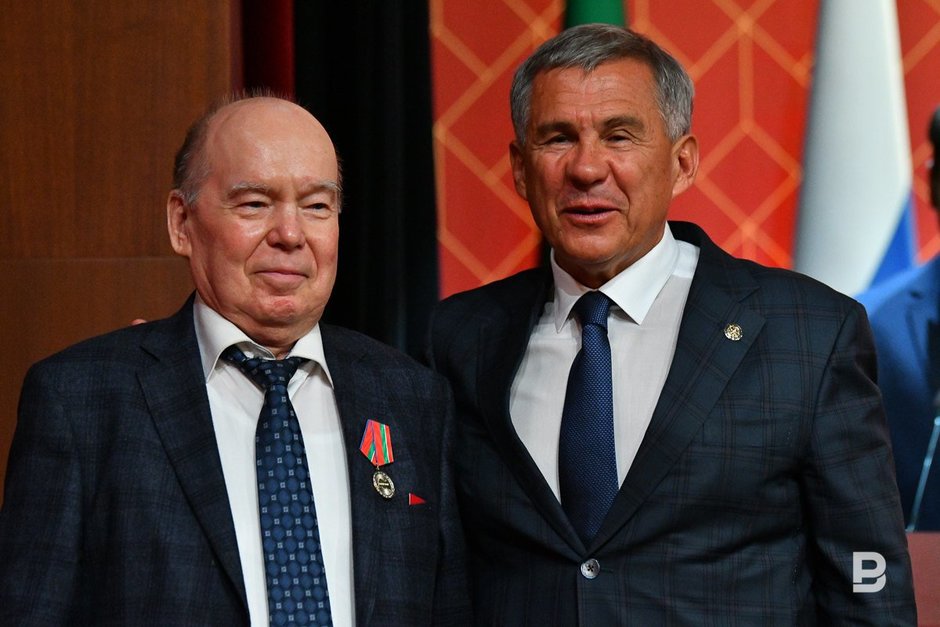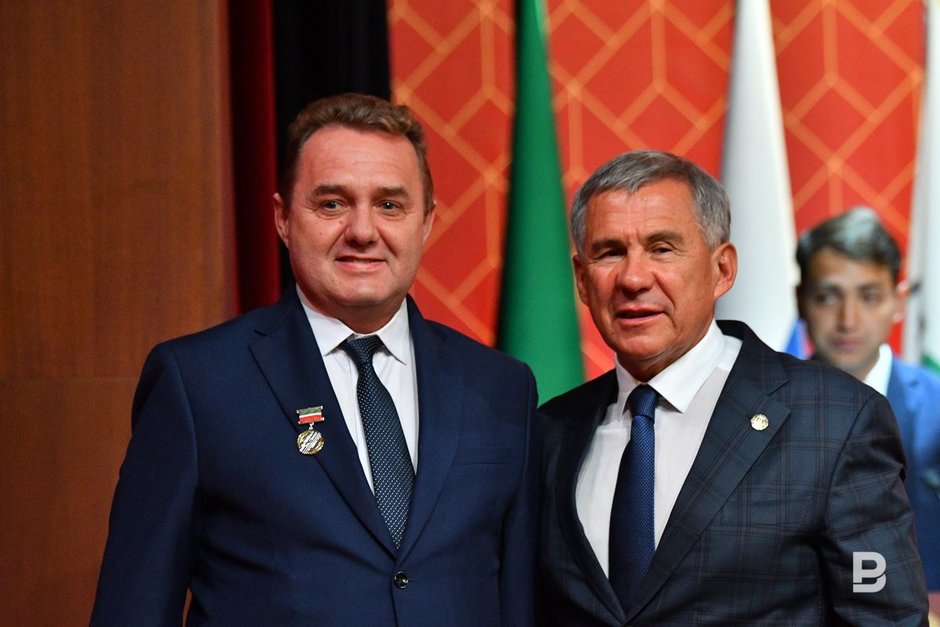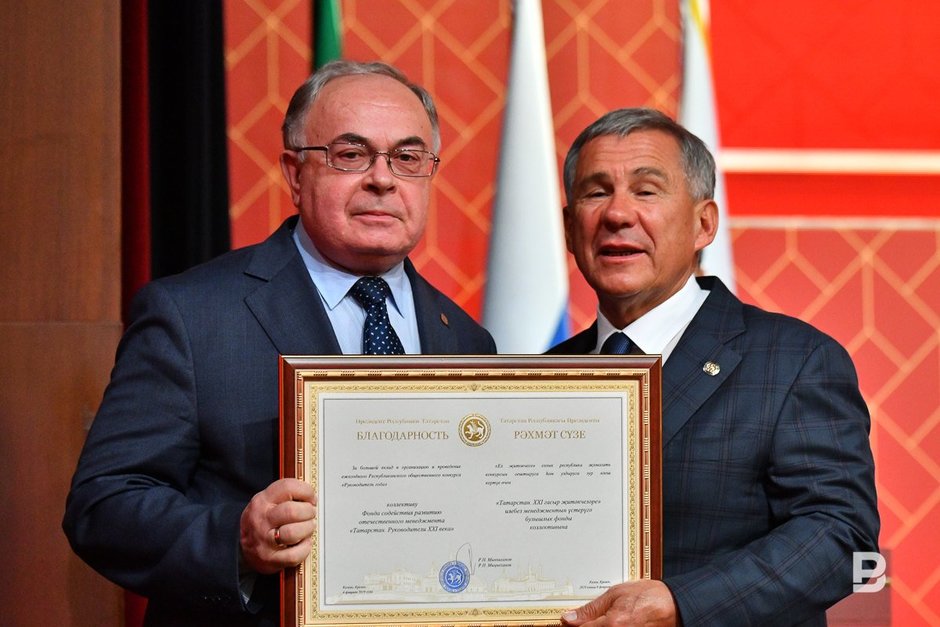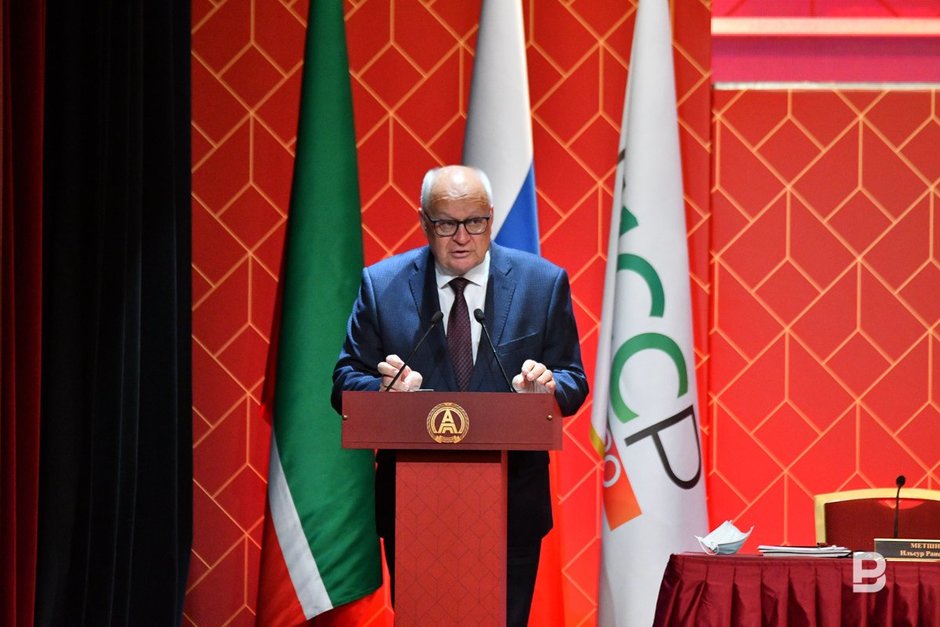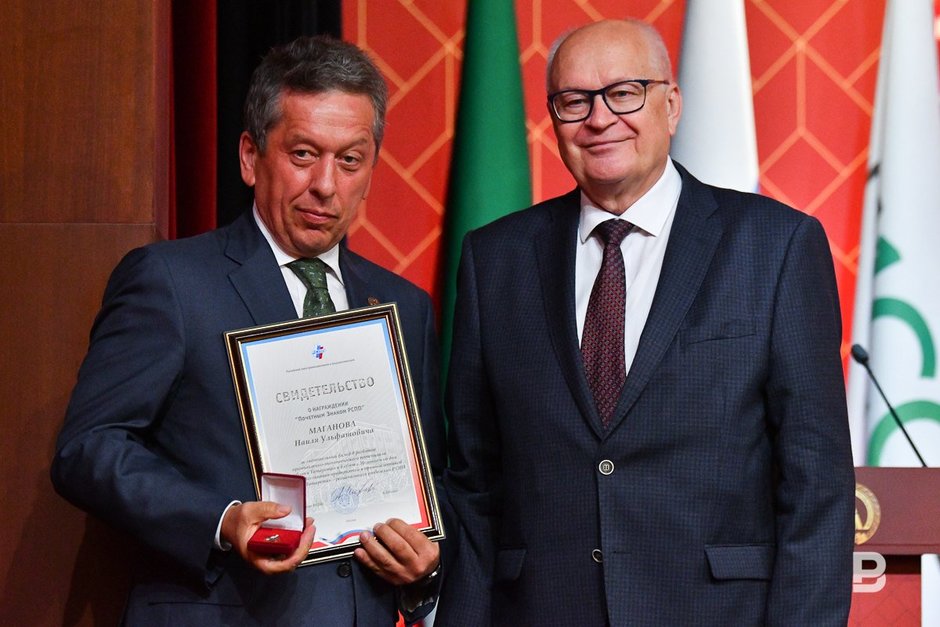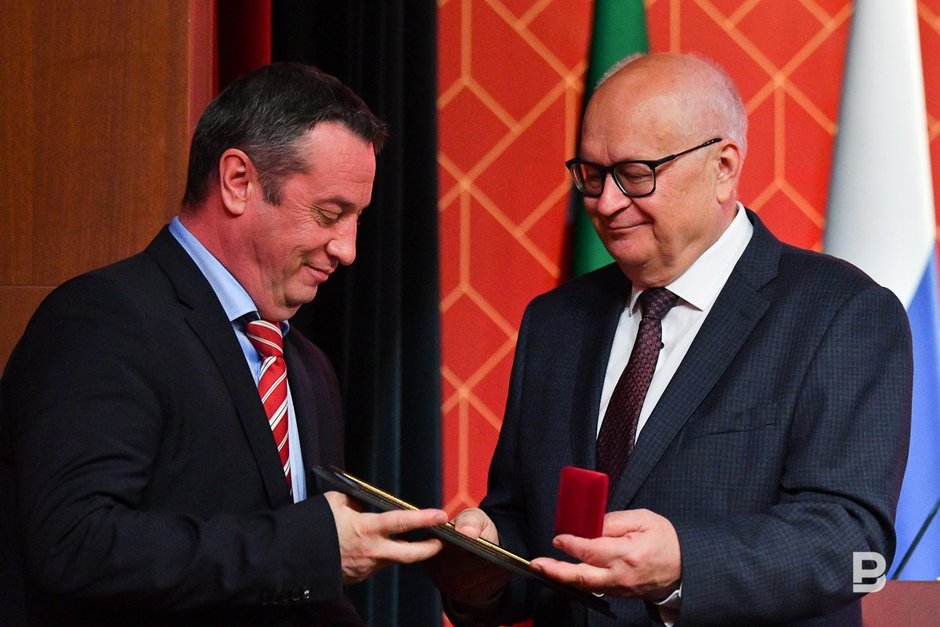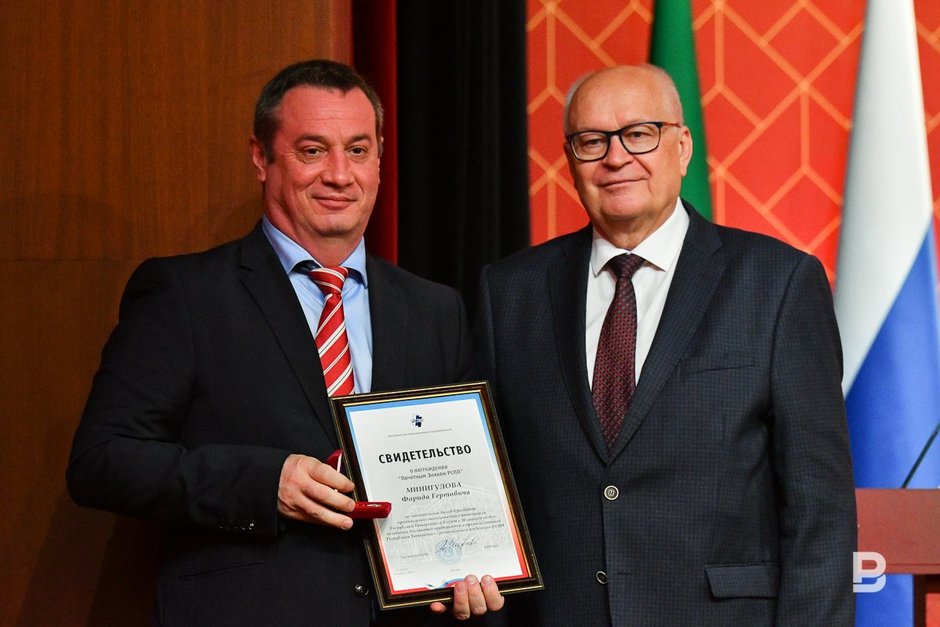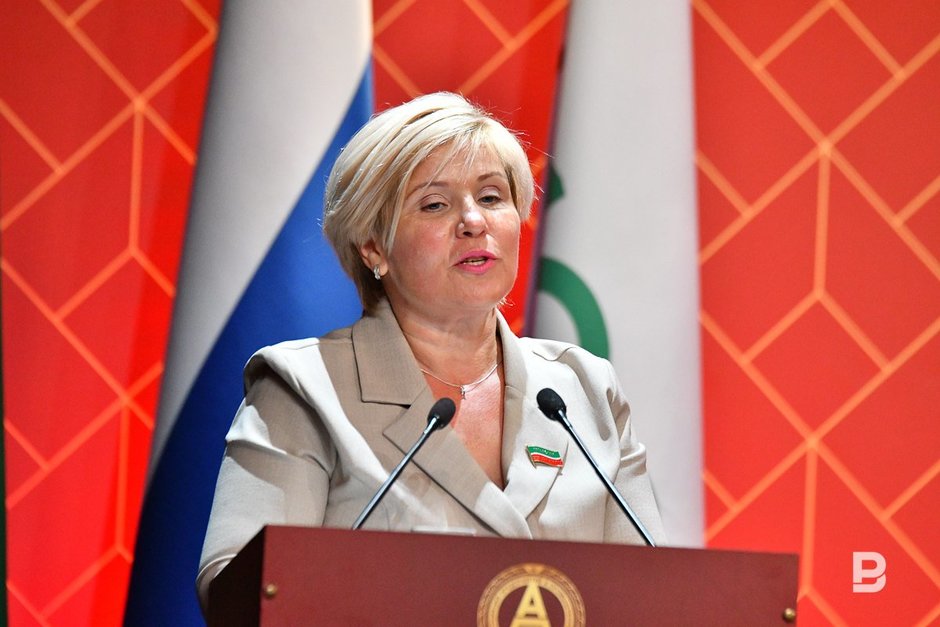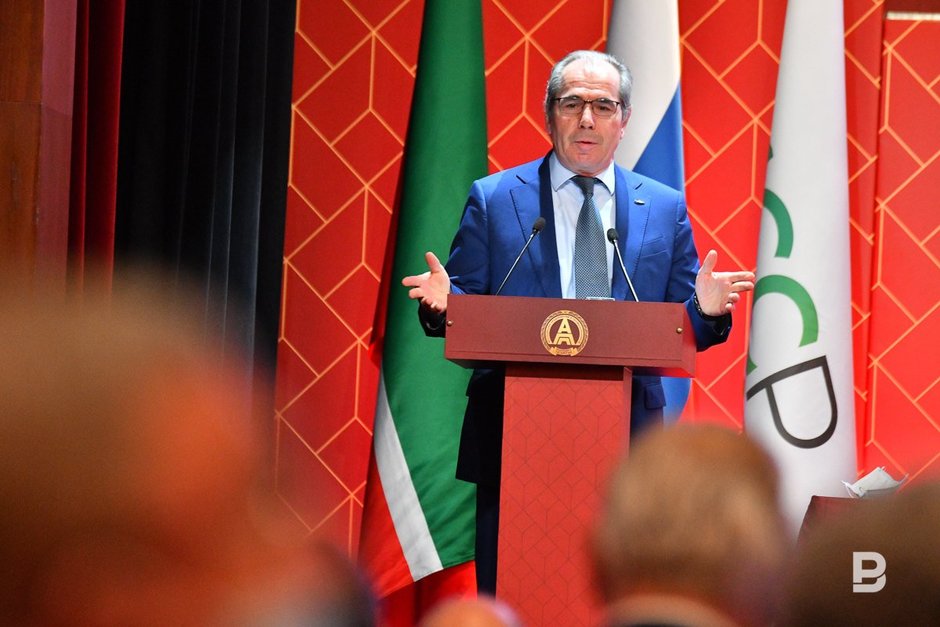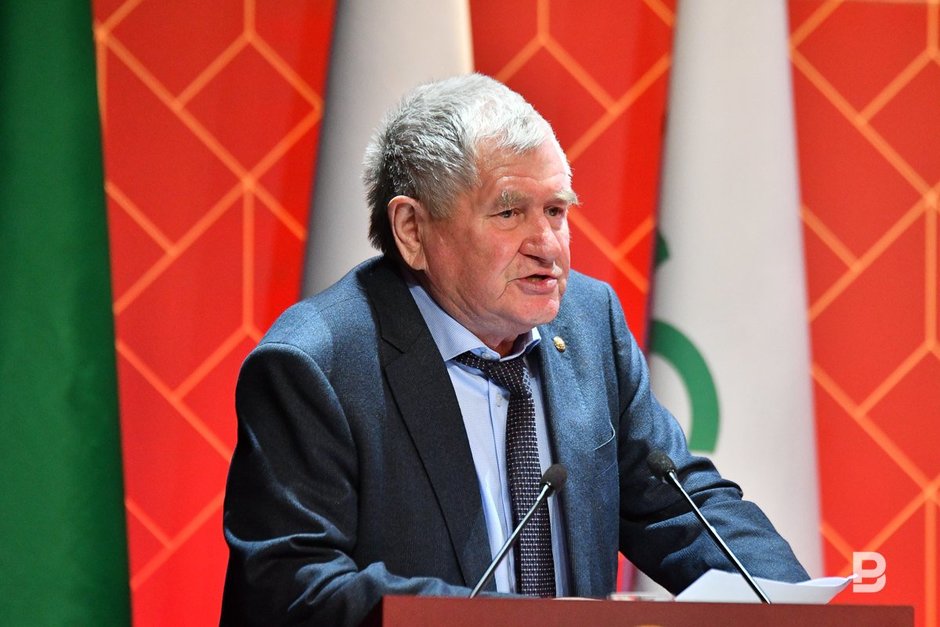Tatarstan industrialists waiting for big reforms from Mishustin’s cabinet
Large businesses reported on the end of the period of hydrocarbon revenues and the necessity of reformation
Leaders of Tatarstan’s biggest plants have discussed the crucial problems of the economy, which pulled GDP down by 10% because of the coronavirus pandemic. Defence plants complained about excessive centralisation that immobilised local tycoons of the Defence and Industry Complex when making decisions, while petrochemists complained about the displacement of Russian goods from European markets. The industrialists think the adoption of republican laws on support for investors, particularly, on investment tax deduction, is the driver of growth. Realnoe Vremya publishes the details of the general meeting of the Tatarstan Association of Enterprises and Industrialists.
Large businesses turned out without support during the pandemic
The pandemic brought us to a new social and economic reality, this was the main thought of Director General of the Tatarstan Association of Enterprises and Industrialists Aleksey Pakhomov who summed up the organisation’s performance for the last 3 years. It should be noted that the Tatarstan association celebrates its 30th jubilee this year and is one of the first professional associations in the country that is a member of the Russian Union of Industrialists and Entrepreneurs (RUIE). In this respect, top officials of all branches of power of the republic visited the forum — President Rustam Minnikhanov, Prime Minister Aleksey Pesoshin, Chairman of the Parliament Farid Mukhametshin as well as Vice President of the Russian Union of Industrialists and Entrepreneurs and Chairman of the Coordination Council of RUIE Offices in Volga Federal Okrug Viktor Klochai. One can notice directors of key large businesses of the republic in the hall as well.
In his report, Aleksey Pakhomov noted that the measures taken by the country’s administration for the citizens’ safety turned out to be “expectedly destructive for the economy and created serious difficulties”. Amid the 40% growth of industrial production in 2016-2019, today we see almost a 10% fall in GDP and the prospect of reaching the pre-crisis level only in the second half of 2021. The collapse in revenue from our exported goods, the contraction of outlets exacerbate the situation.
Pakhomov noted that the government supported the population, small and medium-sized businesses at the height of the pandemic but the support didn’t cover industrial enterprises, though the Russian Union of Industrialists and Entrepreneurs, the Association also participated in its activity, with OPORA Russia have sent about 900 proposals for support for all businesses to the Russian Cabinet of Minister. But they haven’t been heard.
Pakhomov said that in the current geopolitical situation it was hopeless to count on natural hydrocarbon revenue and rise in prices for traditional export to replenish the budget.
“Big reforms of public administration, economic policy, social and civic areas are needed. We wouldn’t like to think that fundamental reforms will mature when the economy faces a deadlock,” he claimed.
Then the director general of the association enumerated key problems that impeded production from developing. Expensive credit is the main problem, which has been the same for many years. Despite the Central Bank’s key rate reduction to 4,5%, the credit value accounts for no less than 10%. But it has recently been possible to receive funding from the Fund for Industry Development, Russian Fund for Direct Investments, Agency for Technological Development and others, especially for those enterprises participating in national projects.
The second lasting problem is the lack of qualified staff in the labour market. There has been some progress in this area in the last years that bears fruit: there have been created about 40 resource centres in the republic for professional training of specialists, a lot is done to popularise skilled jobs, and today 40% of graduates enter vocational colleges after the 9th grade.
Pakhomov urged the government to urgently introduce the National Professional Qualification System to the republic’s economy. According to him, Russia’s leading companies developed over 1,500 professionals standards. Last year, on the Association’s initiative, Tatarstan and the National Agency for Qualification Development signed an agreement, but the structure that will coordinate this work at local level hasn’t been determined yet.
Management’s competence falls short of Soviet ministries
Pakhomov separately mentioned problems of enterprises of the Defence and Industry Complex, Tatarstan has a big number of them. He noted that the amount of government defence orders had been steadily falling in the last years, it is promised to reduce by 30% by 2025. Thanks to low purchase prices, the profitability of the complex’s enterprises is 5%, which doesn’t allow dealing with developing and converting the production.
“One shouldn’t ask for some benefits, one should insist on acceptable terms when creating and performing a government defence order,” the director general of the association offered his recipe. He also noted that at the moment it was necessary to develop a state programme of conversion at federal level to support enterprises of the Defence and Industry Complex.
The report read that a lot of defence enterprises complained about excessive centralisation, which restricts local directors when making independent decisions. “The centralisation of managerial assets perhaps justifies itself in some cases, but then it requires great competence and high organisation from the management, at least at the level of “Soviet ministries”, but, unfortunately, there is no such thing,” the head of the Association complained.
Legislative investment support
Taking advantage of Rustam Minnikhanov’s presence, Pakhomov asked him to support the adoption of a republican law on investment tax deduction on income tax, moreover, the federal centre compensated for two-thirds of shortfalls of the budget. “Such a law is already in force in some regions,” the head of the Association noted.
He also noted that there was envisaged a mechanism to support medium and large investors to launch a new investment cycle. It is the special investment contract (SPIC 2.0) and law on protection and encouragement of capital investments. The republic needs to adopt these regulations stimulating investors.
“We all understand that hyperstability alone isn’t enough to provide the high development pace of the economy. A wide programme of reforms underpinned by real actions is needed. Today we are waiting for this from the new Russian Cabinet of Ministries,” the speaker expressed the industrialists’ hopes.
The president notes the industrialists’ contribution to the fight against the pandemic
Tatarstan President Rustam Minnikhanov also talked about the pandemic and claimed that the republic learnt how to work in the new conditions as a team. Those directors of enterprise that saved the employment, avoided massive lay-offs, managed to prevent hotspots of COVID-19 as well as those who set up production of masks, protective equipment and disinfectants deserved his gratitude.
“Many enterprises such as Tatneft, KAMAZ, TAIF Group of Companies, Kazanorgsintez, Nizhnekamskneftekhim, NEFIS, the Gorky Plant and some others actively supported health care workers and the population. Personal protective equipment was handed over and other ways of support were provided to health care establishments gratis,” Minnikhanov noted.
By the way, Kazanorgsintez was mentioned at the meeting once again. Director General of Kazanorgsintez PJSC Farid Minigulov was awarded the Badge of Honour of the Russian Union of Industrialists and Entrepreneurs for a considerable contribution to the development of Tatarstan’s industrial and economic potential. Vice President of the RUIE Viktor Cherepov noted that the enterprise was the first in Tatarstan to launch and successfully implement a project to create a method of process safety of the working population.
Petrochemistry on the threshold of big changes
Vice President of the Tatarstan Association of Entrepreneurs and Industrialists, Director General of Tatneftekhiminvest-holding Rafinat Yarullin talked about the prospects of development of the petrochemical sectors, which is “on the threshold of big changes”. He said that petrochemical enterprises invested 714bn rubles in fixed capital from 2015 to 2019. Production modernisation allowed making one of the best petrol in Russia at TANECO, Yarullin thinks. He recommended everybody filling up this petrol because it was quality.
The speaker noted that a development programme of the gas and petrochemical complex for 2020-2024 was adopted in Tatarstan in March. Its strategic goal is to occupy leading positions in the production of functional materials, chemicals. One of the key tasks of the programme is the promotion of new products to the market and cooperation between mechanical engineers, physicists, chemists and scientists, which is poor now. Small-scale chemical production, production of propylene, epoxy and unsaturated resins and so on were chosen priority areas for investment.
Yarullin enumerated promising projects that would be implemented in the short run. So Nizhnekamskneftekhim is building a new olefin facility to make polyolefin.
“The main columns have been raised, they are connected. The project on methanol production is underway. Gas and chemistry is a very important moment, it is the prospect,” he stressed, especially in the light of the situation in the gas market, which is unfavourable for Russia when gas prices remain low, some countries are refusing Russian supplies, the construction of Nord Stream gas pipeline has stalled.”
The head of Tatneftekhiminvest-holding drew the attention of the audience to the change of the state in the market of basic plastics where there are higher competition and lower prices. For instance, average polyethylene and polypropylene prices in Europe have reduced by 15%-20%. This is why it is necessary to focus on engineering plastic, new types of polyethylene, high-pressure pipes that can replace metal ones.
The tax on imported goods with big hydrocarbon footprint that is discussed in Europe can turn out a big problem. Companies that are consumers are tightening requirements for petrochemicals. Not eco-friendly products are gradually leaving the market, but there is an opportunity for developing new products.
“The RUIE is familiar with the Russian bill on hydrocarbon regulation well and actively defends interests of businesses. Scientists and businesspeople in Tatarstan are actively discussing the introduction of supplies to the creation of low hydrocarbon chain and launch of joint recycling projects,” noted Yarullin and turned to the vice president of the Union to start joint work on this project following the project implemented at Kazanorgsintez.
After the speeches, members of the Association chose new management of the organisation. It didn’t change: Aleksandr Lavrentyev became president of the Tatarstan Association of Entrepreneurs and Industrialists, who was absent due to health issues, Aleksey Pakhomov is the director general.
